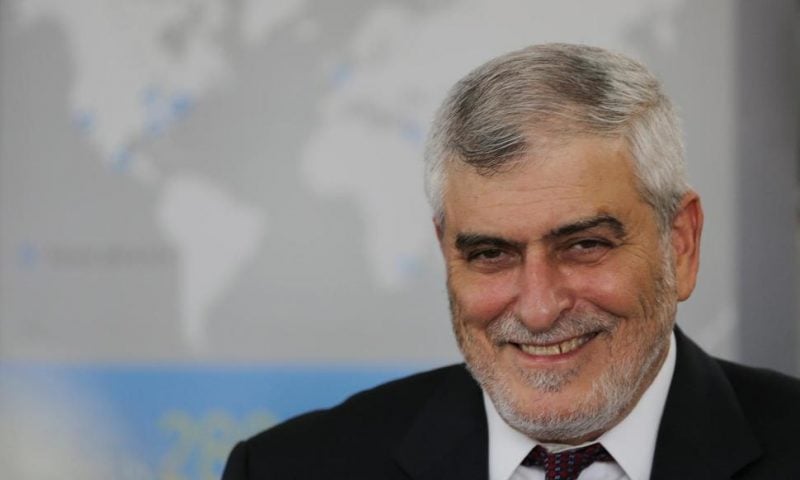The head of Israel’s biggest bank says he expects to strike deals soon with major lenders in the United Arab Emirates for the first time.
DUBAI, United Arab Emirates — Israel’s biggest bank expects to strike deals soon with major lenders in the United Arab Emirates for the first time, its CEO said after meeting top Emirati business leaders on Wednesday. It was the latest fruit of a historic U.S.-brokered deal to normalize relations between the two countries.
Dov Kotler, the head of Bank Hapoalim who led an Israeli business delegation to the UAE this week, told The Associated Press that financial agreements would follow the signing of the pact at a White House ceremony on Sep. 15.
Kotler’s visit comes a week after Israeli officials, accompanied by a high-level U.S. delegation and ferried on the first commercial passenger flight from Tel Aviv to Abu Dhabi, reached understandings with their Emirati counterparts on trade, technology and investment among other issues.
“The spectrum is huge,” Kotler said, involving investment in both countries’ stock exchanges and joint ventures in financial technology. “We’d like to have the (Emiratis) visiting us and doing mortgages in Israel, too.”
Kotler said Bank Hapoalim was in talks to partner with the three largest banks in the UAE, but declined to give their names or a timeline for the deals. First Abu Dhabi Bank and Emirates NBD are known as the country’s top two.
After years of covert trade exceeding $1 billion annually by some estimates, the oil-rich Emirates and Israel, home to a thriving diamond trade, pharmaceutical companies and tech start-ups, are eager to take their ties public.
The UAE, a federation of seven desert sheikhdoms dependent on petrodollars, is keen to cash in on the influx of Israeli investment and travel, particularly as the coronavirus pandemic shrinks demand for oil and slows tourism. It hopes to lure Israeli entrepreneurs to set up shop and well-to-do expatriates to purchase luxury apartments in the coastal emirate of Dubai, which is struggling to cope with the financial fallout of the virus.
In anticipation of Israeli visitors, the UAE’s Department of Culture and Tourism asked Wednesday that all hotels prepare to offer certified kosher food.
The UAE’s low taxes, and lack of an income tax, is “certainly a point of interest” for Israeli business leaders, said Kotler. Still, he struck a cautious tone, warning that people need to “build trust” before business could boom, given the region’s fraught history.
The Palestinians have fiercely opposed the deal, which undermines an Arab consensus that recognition of Israel may only come in return for concessions in peace talks — a rare source of leverage for the Palestinians.
The UAE has touted the deal as a tool to force Israel into halting its contentious plan to annex parts of the West Bank sought by the Palestinians for a future state. The agreement may also help the Emiratis acquire advanced U.S. weapons systems that have been previously unattainable, such as the F-35 fighter jet.

